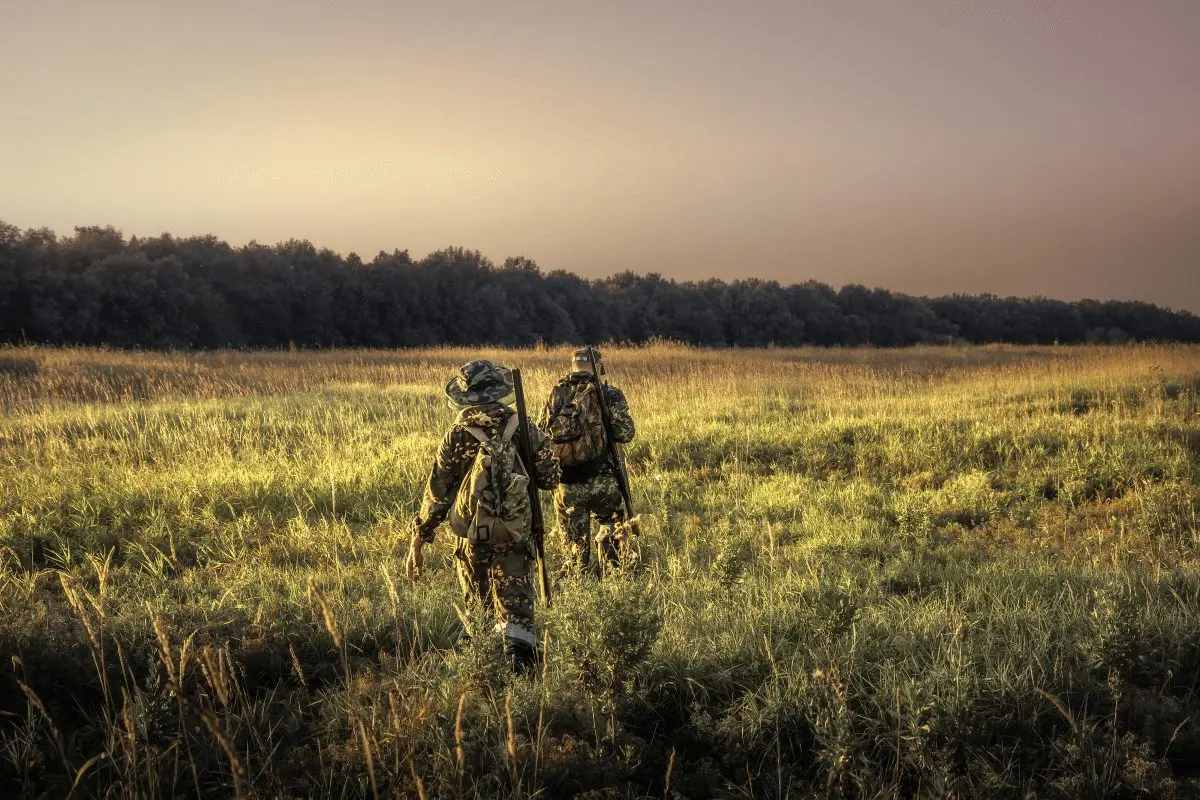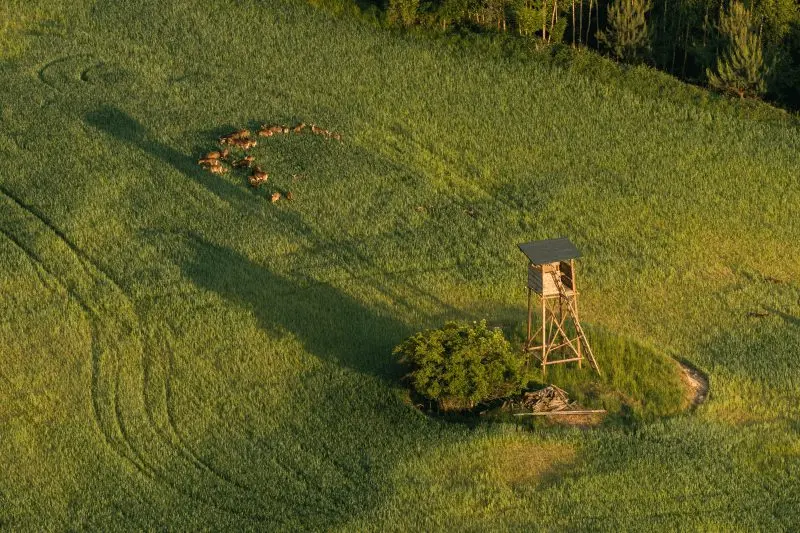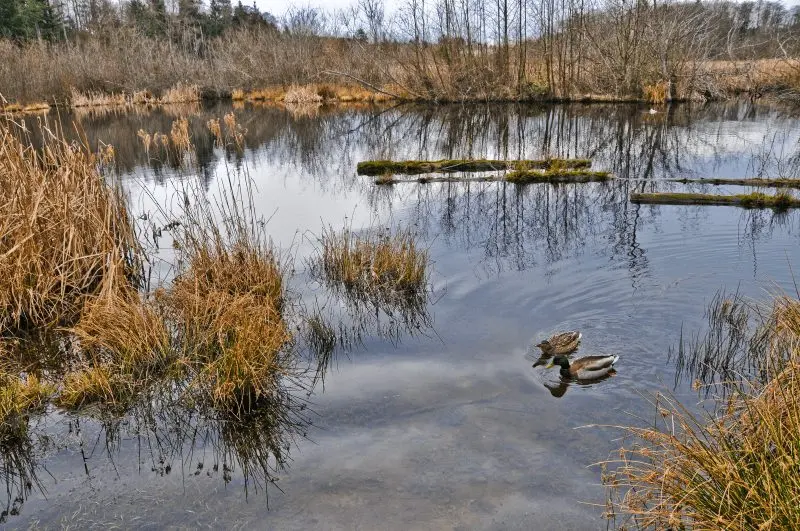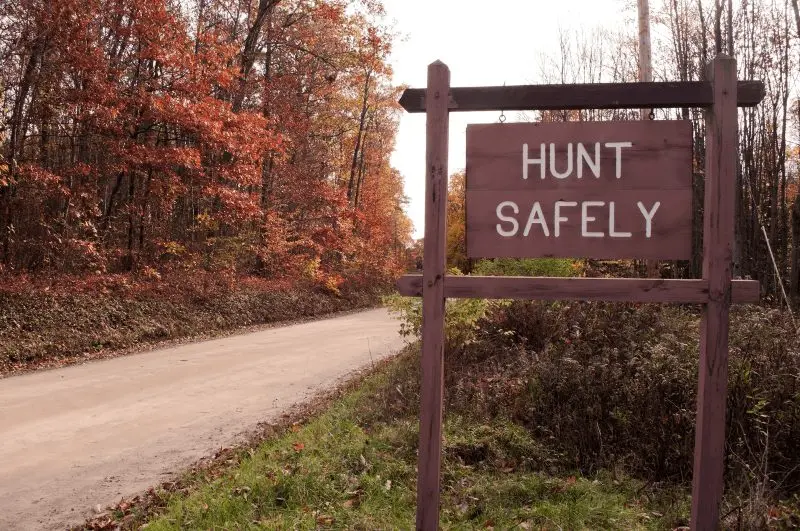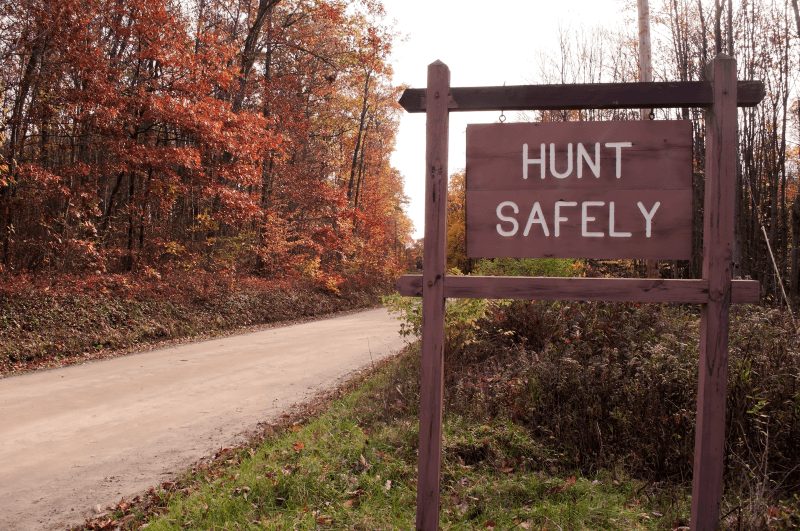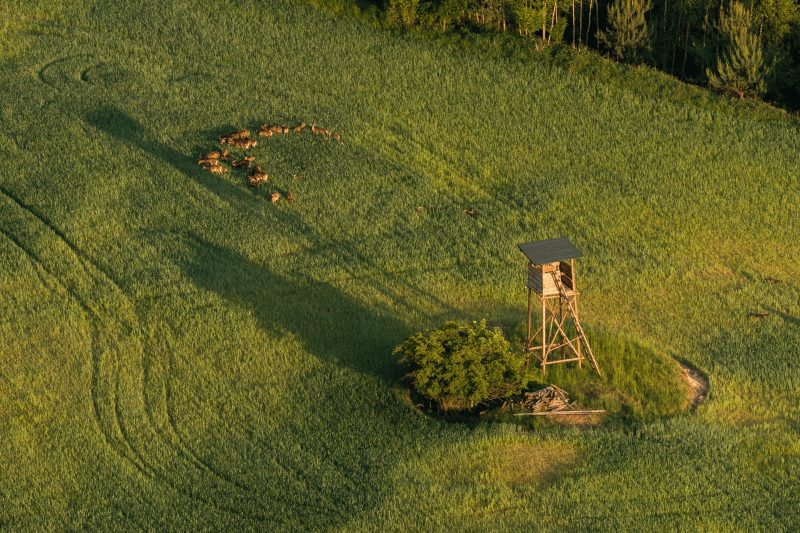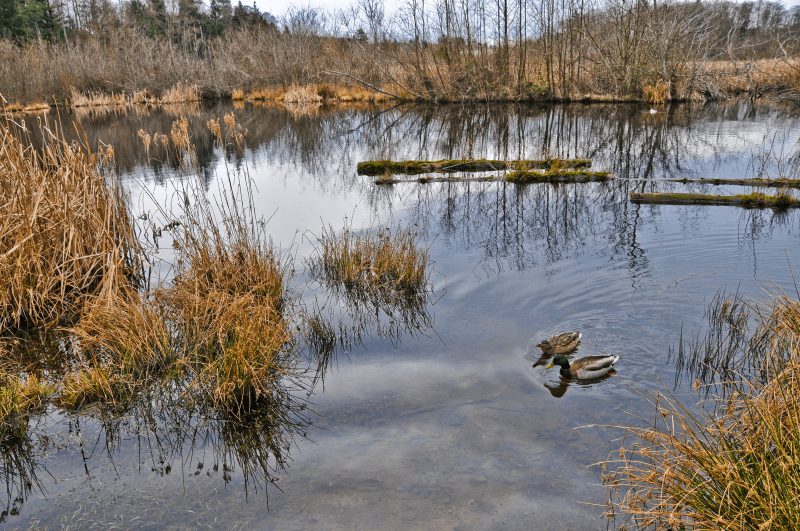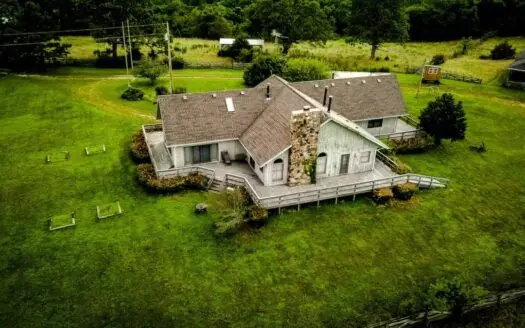The Beginner’s Guide to Scoring Your Dream Hunting Land | United Country Real Estate
The Beginner’s Guide to Scoring Your Dream Hunting Land
If you’re a beginner, the process of acquiring land for hunting can be overwhelming. There are many factors to consider before making a purchase.
Hunting is a beloved activity for many people, but finding the perfect hunting land can be challenging.
It involves not only finding the right plot of land but also knowing local hunting laws and regulations. As a first-time buyer, it’s easy to make mistakes that can lead to disappointment or even legal issues.
If you’re a beginner looking to buy hunting land, it’s important to have a clear understanding of what you need to look for.
To help you get started, we’ve compiled a beginner’s guide to buying hunting land. We’ll guide you through the process, from researching the area to inspecting the land and understanding the legal requirements.
By the end of this guide, you’ll have the knowledge and confidence you need to make a successful purchase.
What Makes Good Hunting Land?
Hunting is one of the most popular outdoor activities in North America. It offers an opportunity to explore the wilderness and connect with nature.
A successful hunting trip begins with selecting the right hunting ground. Let’s discover what makes good hunting land.
- Terrain
The terrain of the hunting land has a significant impact on the accessibility of the land as well as the success of your hunting trip.
Hilly or mountainous terrain may provide more opportunities for wildlife hunting and sighting, but the difficulty of the terrain could impact the ease of navigating the area. Flat terrain may not be as challenging for hunting but provides less cover.
In general, a good mix of both flat and hilly terrain can offer the best hunting experience.
- Location
One of the major factors to consider is the size of the land and its proximity to other hunting areas. Smaller hunting lands may have more minor game, while larger hunting lands are more likely to have a diverse range of wildlife.
Proximity to water sources such as rivers, lakes, or streams, as well as to large patches of dense forest or thick brush, can also greatly increase the chances of successful hunting.
- Wildlife
When it comes to hunting, the presence of wildlife is critical. The ideal hunting land should have a high population of wildlife, including game animals such as deer, elk, bears, and birds.
The diverse range of wildlife is an indicator of good hunting land. Ensure the land you choose has enough wildlife to provide opportunities for hunting.
- Accessibility
Hunting land should be easy to access. The more difficult it is to get to the location, the less likely it is that hunting will be successful. The land should have good roads or trails that lead to the hunting location.
Also, ensure that the hunting land is easily accessible while maintaining the essential privacy required for a proper hunting atmosphere.
- Safety
Safety should always be a top priority when hunting. Besides wearing hunting safety gear and carrying the right hunting equipment, it is essential also to ensure that the hunting land is safe.
The hunting land should have clear boundaries and should not be in a danger zone. Always check with local authorities for any changes in regulations or protocols for hunting in the area.
Choosing the right hunting land is crucial to have a successful hunting trip. Always consider the terrain, location, wildlife, accessibility, and safety of the hunting land before choosing it for your next outdoor adventure.
In the end, the perfect hunting land should offer accessibility, safety, and abundant and diverse wildlife.
Tips for Buying Hunting Land
If you’re an avid hunter, buying hunting land is a dream come true. Not only does it give you the chance to hunt on your own land, but it also means you can manage and improve the environment to maximize your success.
However, buying hunting land is a significant investment, and there are many things to consider before signing on the dotted line.
Here are some tips to help you make a smart purchase.
Find a realtor or real estate agent who specializes in recreational property
Buying hunting land is a big investment, and it’s essential to have a knowledgeable realtor to guide you through the process. Therefore, finding a realtor or agent who specializes in recreational or hunting property is crucial.
They will have a better understanding of the specific needs and requirements that hunting land buyers are looking for such as access to game, available water sources, and potential building sites.
A specialist realtor will have extensive local knowledge about the area you are interested in buying and will be able to provide you with valuable information about the surrounding wildlife, hunting laws, and regulations.
This is why we at United Country Real Estate are committed to helping clients find the best land or property that suits their needs and preferences.
Find your own land today by calling us at 800-999-1020.
Location
Choose a location that is rich in wildlife and has a healthy habitat for your target game. Look for lands that have a mix of forests, wetlands, and open spaces, as they offer the best opportunities for a variety of wildlife.
Consider the accessibility of the location, including proximity to major roads, airports, and other amenities such as lodging and supplies.
Also, take note of the seasonality and weather patterns in the area, as they can greatly impact your hunting experience.
Type of Hunting land
You need to determine what type of game you want to hunt, and what type of terrain and vegetation are best suited for that particular game. For example, if you are looking to hunt deer, you need to find land with enough cover and food sources for the deer to thrive.
If you are looking to hunt waterfowl, you need to find land with suitable bodies of water and wetlands.
So, before making any purchase, make sure to thoroughly research the type of hunting land that best suits your needs.
Are There Deer on the Property?
Ensuring the property has healthy populations of deer will increase your chances of a successful hunt.
Conducting field research, such as scouting the property, talking to the locals, and hiring a biologist to conduct a survey, may help you gauge the number and types of deer that occupy the land.
Factors such as available food sources, water, and shelter may also affect deer populations. Ultimately, conducting due diligence before making a purchase is key to finding hunting land that meets your needs and expectations.
Shelter for Deer and Other Prey
Look for areas with dense vegetation and sufficient cover, which will allow the deer to move around without being detected.
You might also want to consider water sources, as they can attract different types of animals.
It’s essential to survey the area thoroughly and identify high-traffic areas, which can help you determine the best location for your hunting ground.
With the right combination of shelter and resources, you’ll have a successful hunting season and maintain a healthy ecosystem.
Is Water Nearby?
When purchasing hunting land, one crucial factor to consider is whether there is water nearby. The presence of water sources such as lakes, rivers, or ponds greatly affects the habitat and wildlife on the property.
Animals require water to survive, so having a reliable source nearby can increase the chances of successful hunting and improve the overall health of the ecosystem.
Having water on the property can also provide opportunities for fishing or other water-based recreational activities.
Before finalizing a purchase, it’s essential to thoroughly research the area to determine the availability of water sources and their reliability throughout the year.
Food Sources for Local Wildlife
When buying hunting land, it’s important to also consider the local wildlife and their food sources. This can help to ensure a successful hunt and promote sustainable hunting practices.
Research the types of animals that are commonly found in the area and investigate what they eat.
Certain animals may rely on specific plants or prey, so ensuring that there are adequate sources of food can help to attract them to the property.
Providing supplemental food sources, such as planting food plots or setting up feeders, can also increase the chances of a successful hunt.
The Cost of Hunting Land Real Estate
The cost of hunting land real estate can vary widely depending on several factors such as:
- The location of the hunting land.
- The size and terrain of the hunting land.
- The wildlife and game abundance on the hunting land.
- The amenities and facilities available on the hunting land, such as lodges or storage buildings.
In popular hunting areas, prices can be steep, with prices ranging from tens of thousands of dollars to millions of dollars for large properties.
The cost of maintaining and improving the land, such as planting food plots, managing timber, and constructing hunting blinds and stands, can add up quickly.
However, investing in hunting land can provide not only a recreational outlet but also the potential for income through leasing hunting rights to others.
It is important to carefully consider the costs and potential returns before investing in hunting land real estate.
How Much Land to Buy for Hunting
Hunting is a popular activity enjoyed by many across the globe. However, it requires a certain amount of planning and preparation to ensure a successful and enjoyable hunting experience. One of the biggest decisions a hunter must make is how much land to buy for hunting.
Consider Your Hunting Goals
Are you planning to hunt for just a few days or do you plan to do it regularly throughout the year?
Will you be hunting with a group of people or by yourself?
The answers to these questions will help guide your decision on the amount of land needed.
Factor in the size of the Animal You Will Hunt
The size of the animal you plan to hunt should also be taken into consideration when considering how much land to buy.
For example, larger animals such as elk and moose require more land to navigate and are more challenging to hunt than smaller game such as rabbits or squirrels.
Therefore, if you plan to hunt larger animals, you might need more land to ensure a successful and humane hunting experience.
Consider the Terrain and Habitat
The type of terrain and habitat on the land you are considering should also be taken into account. Different animals prefer different habitats such as forests, fields, or mountains.
If you plan to hunt a particular species, make sure the land you purchase has the appropriate ecosystem and terrain.
Check Local and State Regulations
Before purchasing any hunting land, it is crucial to check local and state regulations that govern hunting activities in the area.
Different regions have different requirements such as minimum land size requirements and hunting quotas. Make sure you are abiding by all the necessary guidelines to avoid any legal issues.
Evaluate the Cost
Purchasing hunting land can be a substantial investment. It is important to evaluate the cost and consider the return on investment, such as the potential gains from hunting or leasing to other hunters.
Keep in mind other expenses such as property taxes and maintenance fees.
Determining how much land to buy for hunting requires careful consideration of various factors such as hunting goals, animal size, terrain, and local regulations.
By taking these factors into account and evaluating the cost of the purchase, you can make an informed decision and have an enjoyable and successful hunting experience.
Ensuring the Purchase of High-Quality Hunting Land
Buying hunting land is a significant investment, and making sure you purchase the best hunting land is crucial. Before making a purchase, you should consider the location, habitat, natural resources, access, zoning laws, and potential risks.
Look for land that has diverse habitats and natural resources that attract different wildlife species. Access to the property should be practical and easy, and the zoning laws should favor hunting activities. It is also essential to assess any potential risks, such as environmental issues and neighboring land use, before making a final decision.
Investing time in research and considering all factors will help ensure that you buy the best hunting land for your needs.

